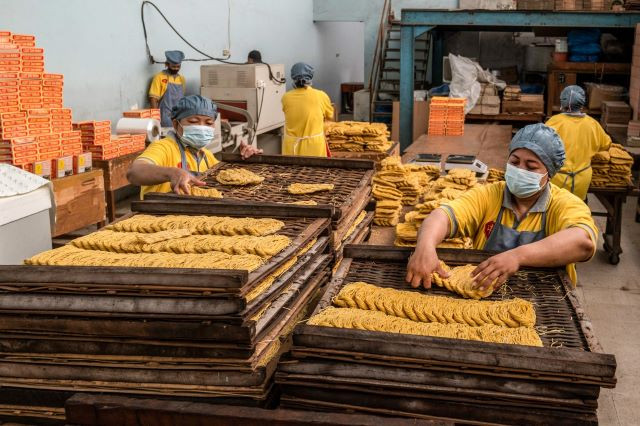Popular Reads
Top Results
Can't find what you're looking for?
View all search resultsPopular Reads
Top Results
Can't find what you're looking for?
View all search resultsOur Ocean Conference: Sustainable fisheries need transparency
Transparency is essential to achieving sustainable fisheries and deterring illegal, unreported and unregulated (IUU) fishing, a panel session on the final day of the Our Ocean Conference (OOC) concluded on Tuesday
Change text size
Gift Premium Articles
to Anyone

T
ransparency is essential to achieving sustainable fisheries and deterring illegal, unreported and unregulated (IUU) fishing, a panel session on the final day of the Our Ocean Conference (OOC) concluded on Tuesday.
Indonesia, which has received praise for its stern policy of sinking seized illegal fishing vessels, is moving toward ensuring greater traceability and transparency.
Indonesia pledged on Tuesday its commitment to creating an electronic fishing logbook to improve data quality, promote compliance and prevent IUU fishing, which is often intertwined with other crimes like human trafficking.
“This program will start at the end of 2018 for over 300,000 fishing vessels over 300 gross tons and in 2019 it will include over 10,000 fishing vessels over 10 gross tons,” Maritime Affairs and Fisheries Ministry Capture Fisheries Director General M. Zulficar Mochtar said during the session.
“We believe that sustainable fisheries management can only be implemented when sufficient data is available.”
Federated States of Micronesia President Peter Christian used the stage to announce a new initiative called the Technology for Tuna Transparency (T3) Challenge, which he said would not only improve monitoring of commercial fisheries through the utilization of an electronic platform, but also strengthen enforcement capabilities at sea.
“We welcome you to join the T3 Challenge,” he said, adding that he hoped the platform would help transform the global seafood market.
International ocean advocacy group Oceana CEO Andrew Sharpless said that transparency was indeed “the most fundamental” principle in sustainable fisheries.
“Transparency is about delivering accountability and deterrence,” he said.
Norwegian Fisheries Minister Harald T. Nesvik said that information and knowledge sharing was an essential tool, and urged the international community to come together to combat transnational organized crimes in the fishing industry.
Norway, together with Indonesia and seven other countries from four continents, including Palau and Namibia, earlier this month signed a ministerial joint declaration against transnational organized fishery crimes during a meeting in Copenhagen.
In the declaration, Norway vowed to share knowledge to help developing countries fight against illegal fishing.
“Combating transnational organized fishery crime is vital for the life under water. The ministerial declaration is an important step toward fulfilling the UN SDGs [sustainable development goals]. We must continue to raise awareness of this issue,” Nesvik said, referring to SDG 14 on ocean-related targets.
Yvonne Sadovy, fishery expert from Hong Kong University, warned that such tools would not be effective without the shared commitment of governments, civil society and businesspeople.
“We have tools to achieve much of these [tackle IUU, collect data, conduct research or reduce the use of destructive fishing gear and marine plastic debris]. What we need more than anything is the political will. But we also need the societal willpower to make things happen,” she said.
A case in point is the United Nations’ Food and Agriculture Organization (FAO)-initiated instrument called the Port State Measures Agreement (PSMA). The PSMA, the first binding international agreement to specifically target IUU fishing, requires countries to conduct port inspections of fishing vessels, regardless of the status of their flags, to prevent illegal catches from landing up in ports.
To date, 50 countries, including Indonesia, have signed the agreement, which came into force in 2016.
The FAO has urged all countries to join the PSMA, which it described as one of the most cost-effective ways to curb IUU fishing, during the OOC in Malta last year.
A proposal to create governance on the high seas was also brought forth during the discussion, with Indonesia once again calling for surveillance in international waters, which make up about 61 percent of the world’s surface, to prevent IUU fishing and illegal transshipment.
“Indonesia is also concerned about the sustainability of resources in the high seas. The high seas are prone to illegal fishing because of a lack of monitoring and weak enforcement,” Zulficar said.
Indonesia announced its commitment to increasing the number of observers of vessels fishing in the high seas in a program that would include 100 observers, 350 fishing vessels and 300,000 observation bases.









